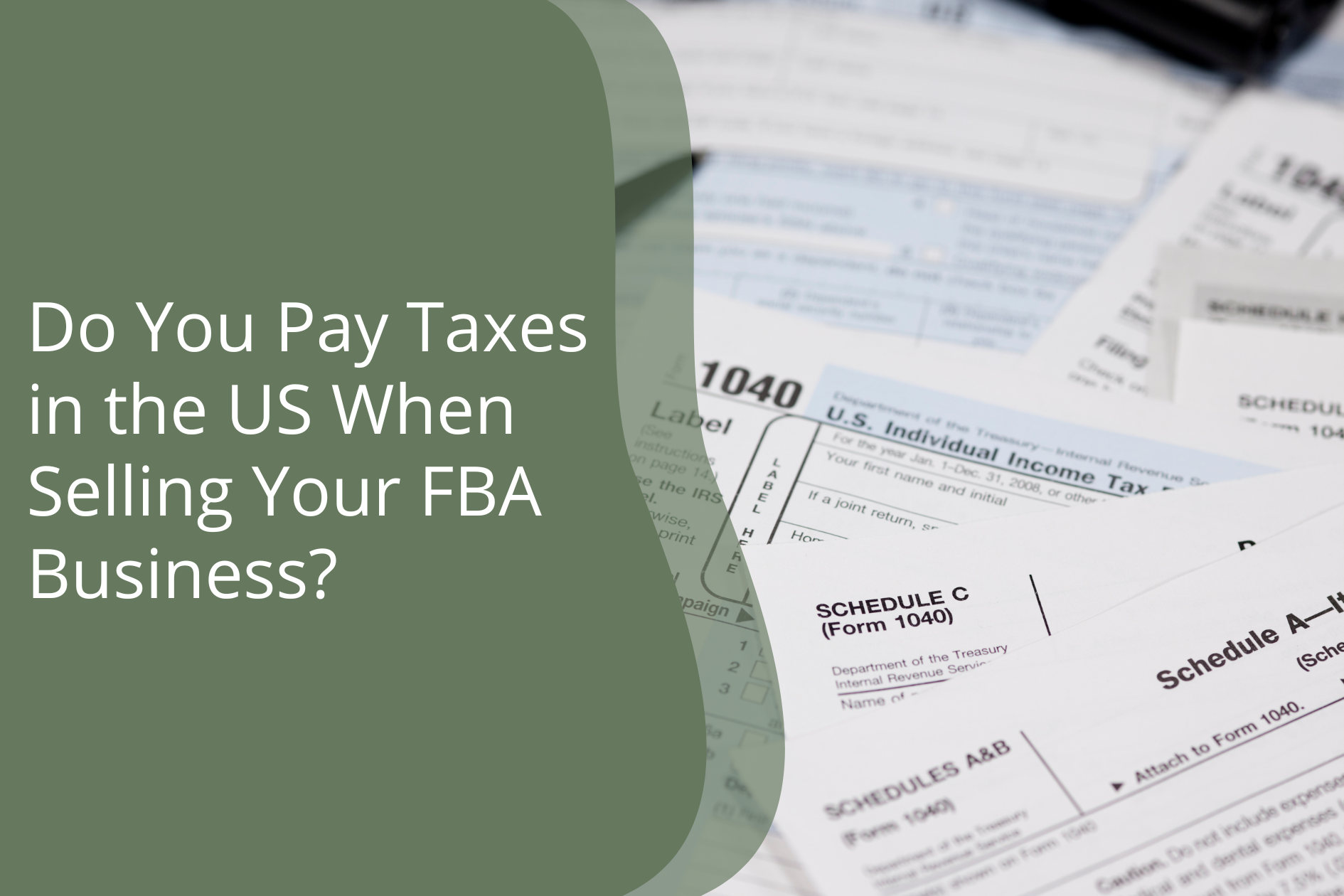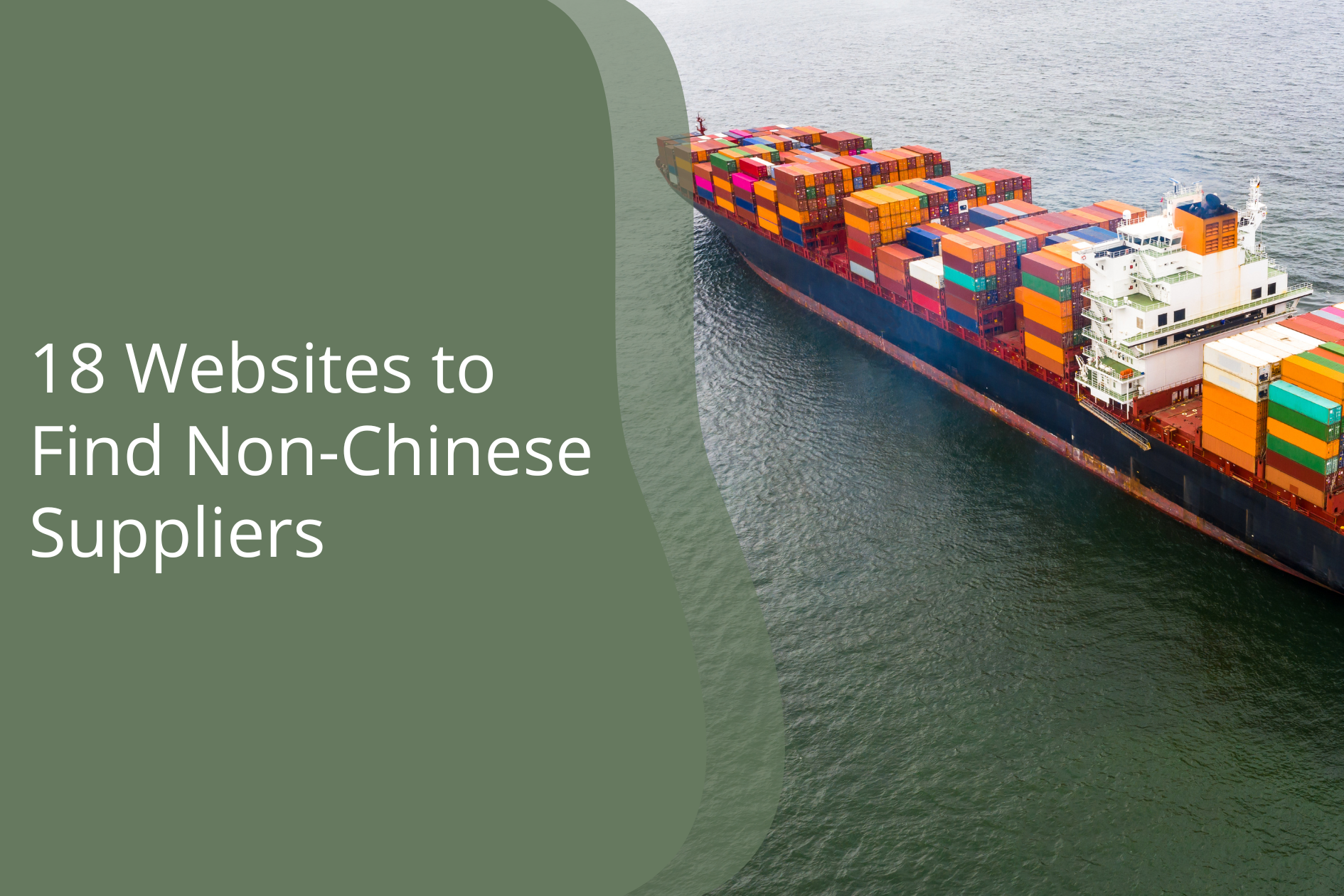Amazon business sellers often ask an important question:
Do you pay tax when you sell an FBA business?
The answer is yes.
Even though an Amazon business lacks a physical presence, it’s still classified as a business. Therefore, Amazon FBA sellers must pay taxes when selling their online store.
In this blog post, you will learn:
- What Tax To Pay When Selling A Business
- Personal Income Tax Rates
- Capital Gain Tax Rates
- Tax Considerations To Keep In Mind Before Selling
- How To Overcome The Tax Hassles
Tax compliance is extremely important for your business, so let’s dive in without further ado.
What Tax Do You Pay When You Sell an FBA Business?
You should be aware of two types of taxes when selling your FBA business: I) personal income tax and II) capital gains tax.
How much you pay depends on the business’s ownership structure, and the terms of sale agreed with the buyer.
Regarding the ownership structure, you could be a sole proprietor, a partnership, a member of an S-Corporation, or own a C-Corporation.
The first three ownership types are considered pass-through entities in which the individual(s) who own the business pay taxes on the business’s profit and any profits generated from selling the business.
Taxes for these types of businesses aren’t assessed at a company level, so if you’re from this group, you should start thinking about how tax costs might impact your income tax returns.
On the other hand, if you operate your business through a C-Corporation, you may incur double taxation—at the corporate and shareholder level.
Let’s try to understand this concept further.
The sale of your C-Corporation will result in federal and, if applicable, the state income tax that reduces the net proceeds of the sale at a company level. These proceeds are then distributed to shareholders, who must pay a dividend tax and any state income taxes upon the distribution.
Consequently, the shareholders may be taxed on half of their profits after the sale, causing a significant dent in their finances.
Note: Sole proprietors and partnerships must pay the least tax when selling their FBA stores!
Next, we look deeper at the two types of taxes you are liable to pay as an Amazon business owner.
Tax on Selling an FBA Business: Personal Income Tax Rates for 2022
Once you start generating income from a digital asset, you’re subject to a personal income tax. The percentage payable varies according to your income bracket.
When discussing personal income tax, these are the progressive tax rates that you should be aware of:
Tax Rate | Single Filers | Married Filing Joint Returns | Married Filing Separately | Household Heads |
10% | $0 to $10,275 | $0 to $20,550 | $0 to $10,275 | $0 to $14,650 |
12% | $10,276 to $41,775 | $20,551 to $83,550 | $10,276 to $41,775 | $14,651 to $55,900 |
22% | $41,776 to $89,075 | $83,551 to $178,150 | $41,776 to $89,075 | $55,901 to $89,050 |
24% | $89,076 to $170,050 | $178,151 to $340,100 | $89,076 to $170,050 | $89,051 to $170, 050 |
32% | $170,051 to $215,950 | $340,101 to $431,900 | $170,051 to $215,950 | $170,051 to $215,950 |
35% | $215,951 to $539,900 | $431,901 to $647,850 | $215,951 to $323,925 | $215,950 to $539,900 |
37% | $539,901 or more | $647,851 or more | $323,926 or more | $539,901 or more |
Tax on Selling an FBA Business: Capital Gain Tax Rates for 2022
Capital assets are assets capable of generating money over time but cannot be sold in regular business operations. This excludes stocks, inventory, or assets yet to be sold to customers from the liable tax bracket.
It’s to Amazon sellers’ benefit to allocate (as much as possible) the purchase price of their business to their capital assets. That’s because capital assets are taxed at lower rates than your ordinary income tax.
The net amount you gain after selling a capital asset is called capital gain (and capital loss if you end up losing money according to the formula below).
Net capital gain = final sale price – investment made (transfer costs + acquisition costs + improvement costs).
This leads to a levy on the profits made by the investor, in our case, an Amazon FBA business, known as the capital gains tax.
Let’s look into this concept with an example.
Your Amazon store, Hypothetical Corp, is up for sale. If you sell it for $1M and its book value is $500K, the sale would result in a $500K profit because its book value (or how much was earned from investment in stock values minus any dividend distribution) would be half that amount.
However, we haven’t accounted for the taxes in our calculation yet.
As the owner of Hypothetical Corp., you would have to pay capital gains tax depending on your income bracket. This can be 15%, 20%, or higher after adding on ordinary income tax or your state-specific capital gains tax. Additionally, suppose you decide to retire after selling off Hypothetical Corp., pocketing all the profits you made. In that case, the inflow of funds might see you entering a higher income tax bracket.
To accurately determine the net capital gains tax, your capital gains are divided into short-term and long-term. Your capital gains are long-term if you sell your asset after holding it for more than a year. In this instance, you are subjected to long-term capital gains tax.
However, if you sell your Amazon business after owning it for less than one year, your capital gains are considered short-term, and the tax rate you need to pay is the same as the ordinary income at the graduated tax rate.
Note: The financial benefits that accrue from allocating much of the sales price to capital gains and the consequences of selling an FBA business only to be bumped to a higher income tax bracket make it essential to consult a tax consultant or an expert Amazon business broker before the sale.
An Easy Breakdown of Capital Gain Tax
Most FBA businesses are usually within sellers’ possession for longer than 12 months before passing into the hands of a new owner, making their capital gains long-term. Below is the breakdown of long-term capital gain tax rates based on the filing status and income caps:
Capital Gains Tax Rate | Single | Head of Household | Married joint filing | Married separate filing |
0% | Up to $41,675 | Up to $55,800 | Up to $83,350 | Up to $41,675 |
15% | $41,676 to $459,750 | $55,801 to $488,500 | $83,351 to $517,200 | $41,676 to $258,600 |
20% | Over $459,750 | Over $488,500 | Over $517,200 | Over $258,600 |
Tax Considerations before Selling an FBA Business
Tax figures can vary depending on the nature of your Amazon FBA business, the state in which you reside, and the agreed-upon terms of sale between you and the buyer. Check out the following three factors to better understand the impact of taxes on your deal.
1. Effect of Federal and State Taxes on the Sale
The sale of an Amazon business usually triggers long-term capital gains for an FBA seller. For example, let’s assume you sell your business for $1 million. In this case, a federal capital gains tax of 20% would apply, reducing the net proceeds from the sale to $800,000.
State income taxes may also apply depending on where you conduct your online business. Residents of Iowa, for example, are liable for an additional 8.53% capital gains tax. Using the $1 million sale figure given in the previous example, the net proceeds to the seller after deducting federal and state taxes, in this case, would be $714,700.
Some states don’t charge residents with state-specific capital gains tax, which makes it favorable to carry out your sales transaction in those regions. These states include
- Nevada
- New Hampshire
- South Dakota
- Tennessee
- Texas
- Alaska
- Florida
- Washington
- Wyoming
2. Terms of Sale Negotiated With the Buyer
The amount you pay also depends on the terms of the sale and how the new owner wants to take over the business. Common stipulations set forward by Amazon FBA business buyers include
- Upfront cash when the deal closes: The buyer pays in full once the deal is complete. This is the most advantageous option for sellers as the capital gains tax becomes due during the same year as the deal closing.
- Earn out. An earn-out is when the buyer pays a portion of the sales price in cash and the rest over a set period if the business continues to meet agreed-upon performance milestones.
- Pay off over time. If the buyer does not have enough money to buy the entire business, they pay an upfront amount and purchase the rest in credit. The balance is usually paid out over a few years, coupled with a low-interest rate.
- Rollover Equity. Rollover equity is a common practice where the buyer has the major share in the business, and the seller retains the remaining amount. This is ideal for sellers if they foresee continual business growth and an appreciated stock value.
Option 1 remains the favorite choice for sellers. However, if you plan on selling your business in any other way, understand the following tax implications. The safest bet here is to sell your FBA business in states where you don’t have to pay income tax on future payments.
3. Other Taxes that May Apply
Some other taxes that can apply to your business include:
- Income tax on non-qualifying capital assets
- Tax on profits acquired on the non-qualifying assets
- State and Local taxes
- Estate taxes
- Additional Health taxes
- Alternative Minimum Tax
- Net Investment Income Tax
- Previous depreciation applied recaptured through ordinary income taxes
Partner with a Broker and Get around the Tax Hassle
Federal, and state tax laws can be confusing, and the ones mentioned in this blog are limited to the US. If you sell globally on Amazon, taxation could get even more complicated!
For the average Amazon seller, juggling tax calculations, growing your online business, and managing seller obligations can feel overwhelming—messing up anyone may result in serious setbacks. You could easily avoid these hassles by partnering up with a trusted FBA business broker and significantly increase your chances of negotiating the best possible deal and maximizing your profits.







